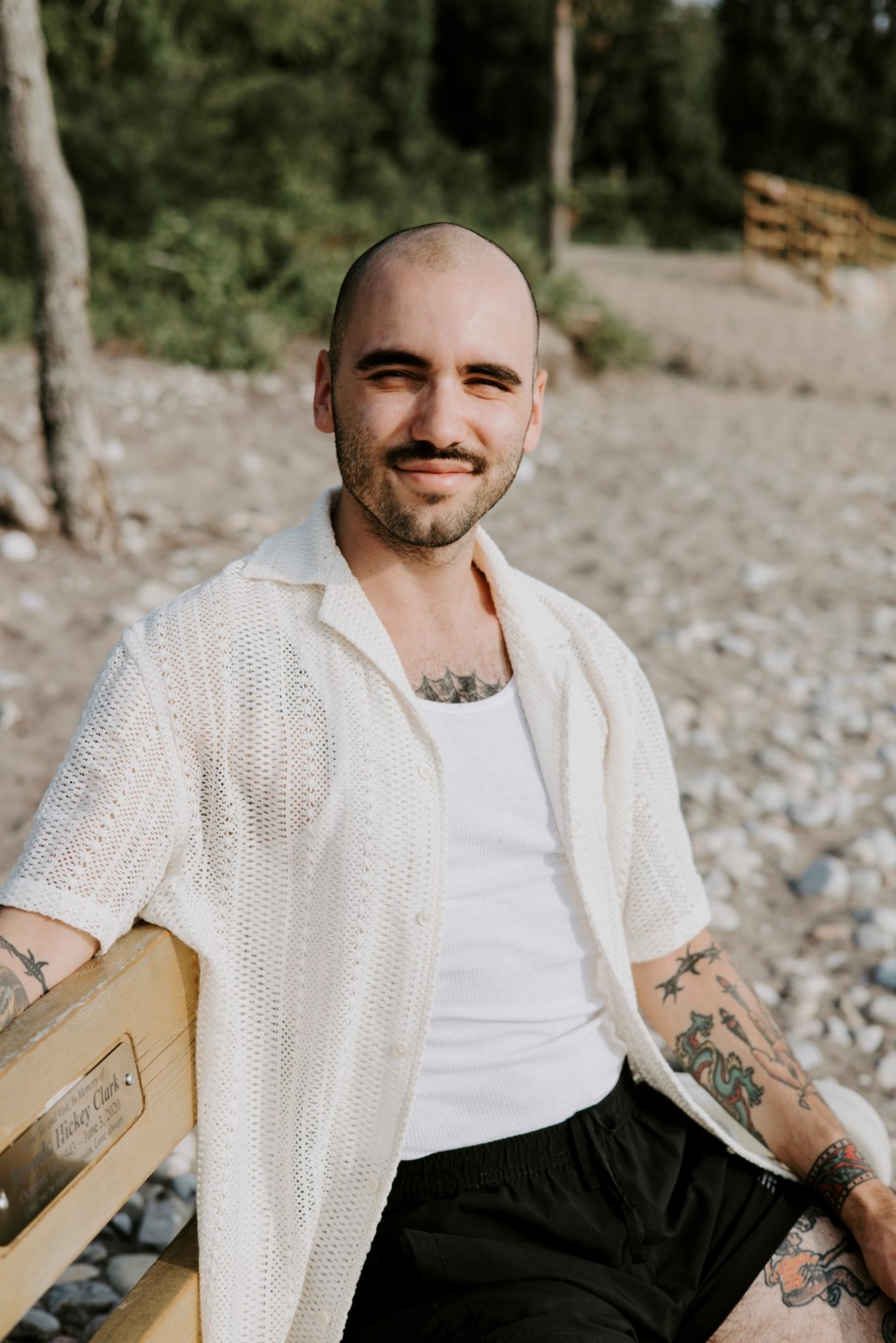In 2022, Whistler Writers Festival (WWF) attendees became acquainted with Cody Caetano and his book Half-Bads in White Regalia: a memoir of his own childhood in the highway village of Happyland, Ont. Many came away impressed and inspired, and they are no doubt looking forward to Caetano’s return this fall as the WWF’s newly-named Writer in Residence.
As such, Caetano will act as a primary mentor in an intensive workshop for up to 12 aspiring authors interested in taking their skills to the next level.
“Cody writes with great humour, sensitivity, insight and conviction, and he has so much to impart to this year’s cohort,” says WWF artistic director Rebecca Wood Barrett in a release.
Half-Bads in White Regalia is a national bestseller decorated with accolades such as the 2023 Indigenous Voices Award for Best Published Prose. It was named one of the year’s best books by The Globe and Mail and CBC Books, in addition to being long-listed for Canada Reads and the Stephen Leacock Memorial Medal for Humour.
Penning a memoir is different from composing an academic essay or even a journalistic article like the one you’re reading right now: it can truly be approached from any and every direction. Caetano’s debut work assumed many forms before its release, not unlike a chameleon.
“I was quite over-stimulated throughout the drafting of the book, because it’s really hard to even orient yourself around the process of writing a memoir,” he explains. “But I really wanted to focus on a chronological approach and a child’s perspective, and to really try and enshrine that child’s perspective, because so many of my favourite memoirs that I read growing up did that.”
CREATIVITY IN COHORT
Last year’s WWF marked Caetano’s first visit to Whistler. He doesn’t snowboard or ski, nor does he have family in the Sea to Sky corridor— yet he’s raring to return.
“I feel very, very lucky and grateful to get the chance to work with writers there, and to be in a cohort again,” Caetano says. “That was one of my favourite times as a writer— working alongside and with other writers.”
As a literary agent employed by CookeMcDermid, Caetano is well-positioned to engage with fellow authors at varying stages of their creative processes. He enjoys exploring the world another writer has made, sharing with them his experience, resources, and the mistakes he made along the way. In fact, Caetano has always been captivated by writing and its manifold facets: drafting, revision, detail, voice, structure, word choice, etc.
Others might find the minutiae to be tedious, or merely a necessary part of creation, but he finds it all to be stimulating— life-giving, even.
Caetano’s eclectic background gives him plenty of life experience to draw from. He moved all around southern Ontario as a boy, and the aftershocks of his parents’ divorce are chronicled in his memoir. He has Anishinaabe First Nations blood courtesy of his mom Mindimooye, who hails from the Interlake Region of Manitoba, while his dad O Touro moved to Canada from the Azores in Portugal.
Yet, Caetano is careful not to misrepresent his relationship with the cultures in his family. “While I do come from these specific backgrounds, ways of telling stories and seeing the world in many practical, literal ways, I haven’t really had access to those backgrounds,” he reveals. “My family didn’t speak Anishinaabe or Portuguese in the home, and so much of your worldview is tied up with language, right?”
Nonetheless, Caetano embraces the challenge of learning more about his heritage. He believes doing so helps him become a better-rounded person instead of defaulting to an individualistic Western worldview that can strait-jacket its adherents into a narrow focus on one’s immediate surroundings, career and family. Caetano’s own parents no longer have a healthy connection with their nations and cultures of origin, and that’s a fate he wishes to avoid.
“It’s important to learn the stories you can of your family, if you have access—to learn the things that make your specific community and the language related to it,” he says. “It’s important not only to you, but to future generations.”
LIFE AS A STORYTELLER
Caetano wasn’t necessarily what one might call a bookworm growing up. Sure, he took to reading quickly and proficiently, but he also had plenty of more mainstream interests such as music, video games and films. Over time, he discovered a passion for storytelling in all its myriad forms—writing was simply the medium that came most intuitively to him.
The 28-year-old can’t pinpoint one specific moment or experience that pushed him to become an author. From his perspective, it simply happened.
Today, Caetano owns two degrees, and has served as editor-in-chief of UTM Mindwaves and co-editor of Echolocation Magazine, while contributing to publications such as The Globe and Mail, PRISM International, Grain, Esse and The Ex-Puritan.
While not everyone is meant to walk his particular path, Caetano believes that writing is a worthy exercise for all.
“There’s a lot of research that’s gone into the benefits of writing for people who are imprisoned or immigrants, ESL communities, and people who come from parents with addiction issues,” he says. “A lot of people don’t have a great relationship with language—in particular, their own language that they speak. If you have a negative relationship to communication in general, it really can inadvertently burden your interior space and have a negative effect on your way of seeing the world, which, to me, is foundational.
“I think writing or storytelling can impact people’s lives, because that is what our lives are. A lot of times, when we speak to each other, we’re constantly communicating and trying to relay information, which is, in a lot of ways, what a story really is.”
Visit whistlerwritersfest.com for more information about the WWF Writer in Residence program. A scholarship for those who are Indigenous, Black or a person of colour is also available.




